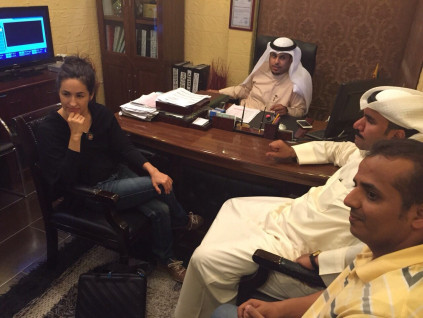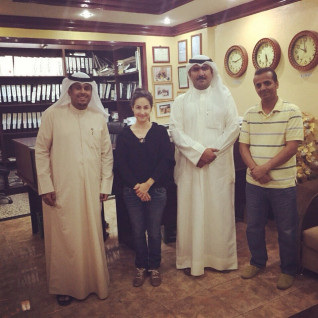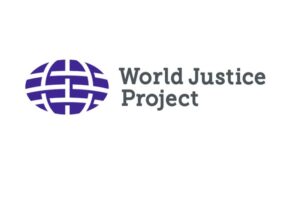Social Accountability for Recruiting Agencies (SARA)


The Challenge
In Kuwait, domestic workers play an important role in society contributing to the country’s wealth and lifestyle. The country, with a population of only 1.3 million citizens, employs more than 660,000 domestic workers, representing one domestic worker for every two Kuwaiti citizens, holding the second largest number of domestic workers in the Middle East after Saudi Arabia.
Globally, domestic workers – the vast majority of whom are women and girls – are excluded from basic labor laws denying them protection of their most basic human rights. This exclusion – together with gender discrimination in social and legal norms – have led to a marginalized, unprotected and vulnerable society. Domestic workers are in fact amongst the least protected within the labor force.
For the last decade, international organizations have documented a series of human rights abuses against domestic workers in the Middle East, described by some as a type of modern day slavery. In extreme cases these include long working hours with no days off, unpaid wages, confiscation of their passports, forced confinement, food deprivation, physical and sexual abuse and forced labor including debt bondage and trafficking.
Despite Kuwait’s efforts to prevent these cases of human and labour rights abuses, incidents of abuse continue to surface due to the inefficient regulatory framework for domestic work, primarily the regulation of employment agencies. Agencies recruit women and girls to work as domestic workers often without disclosing the details of the position, such as the extent of working hours, the work conditions, applicable rights and duties or even the contract length. Also, they charge high fees for the recruitment (illegally as Kuwaiti law mandates the sponsor to pay all fees) and ask workers to sign contracts in Arabic. This lack of transparency also has potentially negative effects on Kuwaiti families, as information about the workers’ experience, religion or age is often false and may lead to potential conflict at home. The absence of implementation of Kuwaiti laws and regulative standards for agencies has been leading to cases of abuse and exploitation of domestic workers as well as Kuwaiti families being misled. The supply (domestic workers), as well as the vast majority of the demand side (Kuwaiti families) do not want this, wherefore a goal-oriented and effective reform of the recruiting process is pivotal to prevent further abuse and lack of transparency in the hiring stages.
We work to protect and promote the rights of domestic workers through empowerment and through the creation of new practices that effectively will ensure, promote and protect the fundamental rights of domestic workers. At the same time, we help concerned Kuwaiti families to be able to make a more transparent and informed decision.
Project Summary
We contributed to the improvement of human and labor rights for domestic workers in Kuwait through initiating a demand for social regulation via SA8000® Standard.
Through this project we committed to the following activities for a period of 12 months:
- The SA8000 Standard, established by SAI and one of the world’s preeminent social standards, is a tool for implementing international labor standards to protect workers along each step of the supply chain. We seek to introduce this standard in Kuwait operative agencies through a series of workshops and leaflets that will be given to concerned Kuwaiti families for the creation of a certification demand, as well as to the agencies itself for basic capacity building.
- Thereby, agencies that obtain a future certification will have proven that their processes and procedures are aligned and in full compliance to ILO conventions to measure social compliance and to protect the basic human rights of workers.
- The nine elements that SA8000 Standard include are: child labor; forced and compulsory labor; health and safety; freedom of association and right to collective bargaining; discrimination; disciplinary practices; working hours; remuneration and management systems. Our purpose is to introduce SA8000 Standard through the following approach:
- Conduct at least 4 awareness raising workshops for private persons
- Conduct at least 4 implementation trainings for recruiting agencies
- Develop a consultation program
- Develop a resource booklet for domestic workers informing them on their rights and duties, as well as support information in at least two different languages.
- Develop a SA8000 Standard Action Manual for recruiting agencies (specific information for this industry).
Impact
Published by the ILO, you can check our SARA project report here.
Through its unique approach, this project helped implement international standards to an unregulated industry, directly promoting fundamental rights of domestic workers in Kuwait. With the introduction of a comprehensive and market oriented regulation of recruitment practices, the project helped promote equal treatment and absence of discrimination, the right to life and security of the person, and the fundamental labor rights of thousands of domestic workers will be effectively guaranteed.
On the other hand, by improving and regulating the current standards of recruitment, the project was also able to contribute to the implementation and enforcement of Kuwaiti labor laws already in place. SARA project, through the scheduled workshops, also provided Kuwaiti families the opportunity to show the international public that they are doing the utmost in preventing any form of abuse against domestic workers.
Partners
We engaged with the following organizations at different levels and stages of the project:
- The International Labor Organization
- Kuwaiti Union for Domestic Labour Offices (KUDLO) a business association for owners of domestic labour recruitment agencies
- The Kuwait Society for Human Rights
- Social Accountability International
- Alanoud Al Sharek
details
Program Type: Grantee
Region: Middle East & North Africa
Program Countries: Kuwait
Rule of Law Index Factors: Fundamental Rights (Factor 4), and Regulatory Enforcement (Factor 6).
Issue Areas: Business, Government, Human Rights, and Women and Girls.
Awards
We were awarded with The World Justice Project Scholarship. Throughout this opportunity SARA is brought possible, and its program actively contributed in improving the conditions of domestic workers in Kuwait.

